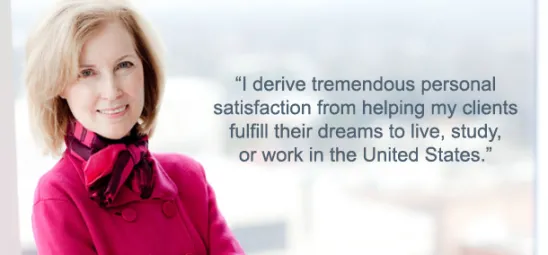China’s wealthy investors are known for seeking secure havens for their money overseas. In addition to being considered a secure environment for their money, the US offers the EB-5 program providing the investor and his or her immediate family with permanent US residence, known as getting “green cards” in return for making an investment.
Basically, in return for an investment of either $500,000 or $1,000,000, which can be shown to the satisfaction of the US Citizenship and Immigration Services to create 10 US jobs per investment over a two year period, the investor and his family get green cards. Since it started in 1990, the EB-5 visa program has brought approximately $6.7 billion to the US and has created 95,000 jobs. In fact, the EB-5 visa program was not very popular until the 2008 financial crisis when traditional sources of financing became more difficult to obtain. Since then, numerous businesses have attempted to use the EB-5 program to raise money. For example, Vermont’s Trapp Family Lodge of “Sound of Music” fame advertises that it seeks EB-5 investors to open a beer hall and renovate its existing resort facilities.
There are two distinct EB-5 routes — the Basic Program and the Regional Center Pilot Program. Both programs require that the immigrant make a capital investment of either $500,000 or $1,000,000 (depending on whether the investment is in a Targeted Employment Area [TEA]) in a new commercial enterprise located within the United States. A TEA is defined by law as “a rural area or an area that has experienced high unemployment of at least 150% of the national average.” The new commercial enterprise must create or preserve 10 full-time jobs for qualifying US workers within two years (or under certain circumstances, within a reasonable time after the two year period) of the immigrant investor’s admission to the US as a Conditional Permanent Resident.
Entrepreneurs across the nation have set up regional centers for foreign investment to market local EB-5 projects to investors. There are over 230 such regional centers, some of which are state-run like Vermont’s Jay Peak. The flexibility offered by a regional center is attractive to both the investor and developer since the investor does not have to play a role in the company. With a direct EB-5 investment, the investor must have some sort of “managerial” function. Seeing a lucrative opportunity when connecting an investor with regional centers, an industry has sprung up, particularly in China, to connect US businesses with potential investors. These go-betweens charge the regional center as much as $175,000 per investor for making the introduction.
Some projects have not produced the requisite number of jobs that would prompt US immigration authorities to withhold green cards - resulting in exposure to lawsuits from the investor against the developer or regional center that has solicited the investment. Approximately 31 investors, 15 from China, filed a federal lawsuit alleging the only thing they had to show for a $15.5 million investment was an undeveloped plot of land across the Mississippi River from New Orleans. In San Bruno, California, three Chinese investors alleged in a lawsuit filed last year that they lost $3 million when an EB-5 developer disappeared with his associates concocted a story about his death.
In contrast, the Marriot and Hilton hotel chains have successfully solicited and obtained EB-5 investment funds to build new hotels; Sony Pictures Entertainment and Warner Brothers have used the EB-5 program to raise funds for film projects; and the new home of the NBA's Brooklyn Nets, Barclay Center, was funded through EB-5 investment.
Even if successful, EB-5 visa approval has become much slower due to suspicion of fraud and developers' inaccurate estimate of creating 10 jobs per investor. With the economic downturn, the USCIS has hired economists and securities lawyers to review EB-5 applications. Now showing it that it means business, the Securities Exchange Commission has filed its first lawsuit against an EB-5 project alleging that the promoters of a Chicago hotel and convention center project fraudulently sold more than $145 million in securities and collected $11 million in administrative fees from over 250 Chinese investors.
The Canadian government has decided recently to halt its immigrant investor program due to the number of Chinese applications. This has left Chinese investors potentially turning their attention to the US equivalent as they seek a financially and politically stable haven for themselves and their families.




 />i
/>i


